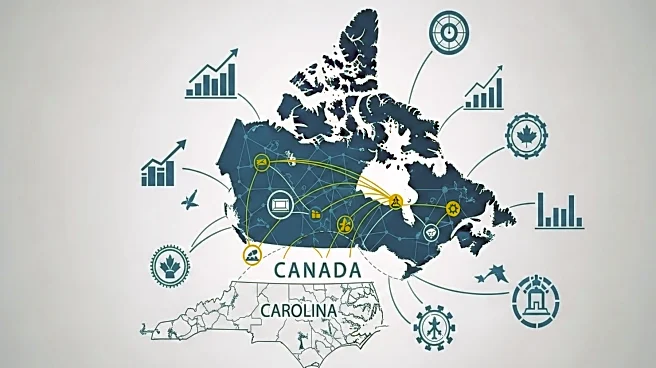What is the story about?
What's Happening?
Trade between North Carolina and Canada has remained stable despite the imposition of tariffs earlier this year. According to the Economic Development Partnership of North Carolina (EDPNC), the state has exported over $5 billion worth of goods to Canada year-to-date. While tariffs have had minimal impact overall, certain commodities have experienced significant changes. Exports of animal and vegetable fats to Canada have increased by 98.4%, while vehicle and meat exports have risen by approximately 75%. Conversely, exports of aircraft and aircraft parts have declined by 54.7%. On the import side, Canadian precious stones and metals have seen a dramatic increase, while organic chemical imports have plummeted.
Why It's Important?
The stability of trade between North Carolina and Canada is crucial given Canada's status as the state's largest export market. The resilience of this trade relationship, despite tariffs, underscores the interdependence of the two economies. The significant shifts in specific commodity exports and imports highlight the dynamic nature of international trade and the potential for tariffs to alter trade patterns. These changes could have broader implications for industries reliant on these commodities, affecting supply chains and pricing strategies.
What's Next?
As tariffs on Canadian imports have recently increased, ongoing monitoring of their impact on trade will be essential. The potential introduction of tariffs on aircraft and aircraft parts in January 2026 could further affect trade dynamics. Stakeholders, including policymakers and businesses, will need to assess the long-term effects of these tariffs and explore strategies to mitigate any negative impacts on North Carolina's economy.
















